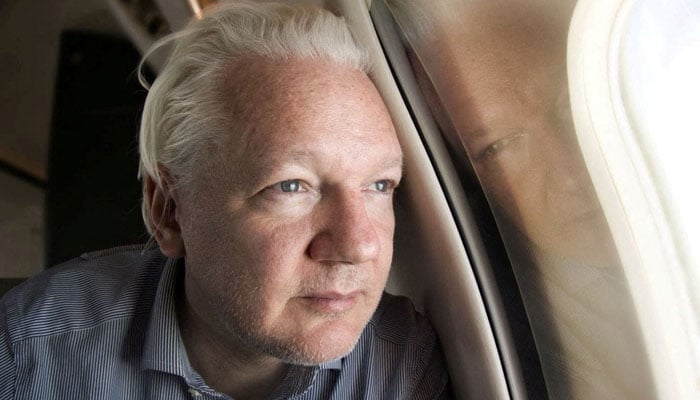WikiLeaks founder Julian Assange to be freed after plea deal with US
Plea deal with US will set him free after 14-year British legal odyssey and allow his return home to Australia
June 25, 2024

Julian Assange, the founder of WikiLeaks, has agreed to plead guilty on Wednesday to a single charge of violating United States espionage law, marking an end to his 14-year legal battle in Britain.
The charge relates to his involvement in obtaining and disclosing classifies US national defence documents, Reuters reported, citing filings in the US District Court for the Northern Mariana Islands.
The plea deal, which could allow his return home to Australia, follows years of legal struggles, including a lengthy stay in a high-security British jail and seeking refuge in Ecuadorean embassy in London.
Previously, the 52-year-old Australian editor, also faced allegations of sex crimes in Sweden and battled extradition to the US, where he faced 18 criminal charges.
Assange is due to be sentenced Wednesday to 62 months of time already served, at a hearing in Saipan in the Northern Mariana Islands, at 9am local time.
The US territory in the Pacific was chosen due to Assange's opposition to travelling to the mainland US and for its proximity to Australia, prosecutors said.
Assange left Belmarsh maximum security jail in the early hours of Monday, before being bailed by the London High Court and later boarding a flight, his wife, Stella, said.
"I feel elated," Stella, who flew to Australia from London on Sunday with the couple's two children, told Reuters. "I also feel worried ... Until it's fully signed off, I worry, but it looks like we've got there."
A video posted on X by Wikileaks showed Assange dressed in a blue shirt and jeans signing a document before boarding a private jet.
He had recently won permission to appeal against the approval of his US extradition and the case was due to be heard at London's High Court next month, a factor that his wife said helped galvanise talks over a deal.











